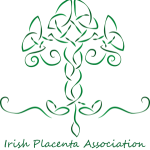Why would I get my placenta encapsulated?
Most mammals consume their placenta directly after birth (a process called placentophagy). There are several presumed reasons for this, one is to ensure that all evidence of the birth is removed from the environment, thereby making sure any predators do not become attracted to sniffing out and eating the new arrival (and possibly the mother too!) Secondly, it could be due to the nutrients within the placenta which are beneficial for the mother, and evolutionary processes have encouraged the mother to make the most of them when she is depleted after pregnancy and birth.
A human placenta contains a unique blend of hormones known to aid and stimulate milk production, uterine healing, and hormonal balanc. In addition it contains minerals (notably iron) and vitamins to ensure that you stay buoyant healthy and well emotionally and physically after growing and birthing a baby. Consuming your placenta enables you to take advantage of the medicine cabinet mother nature has made readily available to you as a postpartum human mother.
Some examples of hormones in your placenta include:
Oxytocin: Otherwise known as the love drug! Oxytocin is crucial in mother infant bonding amongst many other things including mood. By consuming placenta capsules a mother may top up her levels of oxytocin which in turn may aid her bonding with her newborn and may also help her avoid low mood states.
Progesterone, Oestrogen and Testosterone: All helpful in aiding the growth of mammary tissue for breastfeeding and also useful in helping regulate postnatal bleeding
Prolactin: This is the hormone which stimulates that production of human milk and helps promote mother baby bonding
Corticotrophin releasing hormone (CRH)This is in rich supply within the placenta and is associated with stress reduction. Some researchers believe that he baby blues at 3 days postpartum can be caused by a lack of CRH and oxytocin.
Some examples of minerals and vitamins in your placenta include:
Iron: The placenta is rich in iron and can contribute to relieving the symptoms of anaemia, such as tiredness and depression
Vitamins B6, C, D, E, K, B Complex, all help to boost the immune system.
What do mothers say about placenta encapsulation?
Mothers who take their own placenta in capsules report that they have better mood, more energy, better milk supply, less sadness, less blood loss and faster healing. All mammals eat their own placenta even those mammals that are vegetarian. In some respects you could say that placenta capsules are like a gentle form of ready made, perfectly tailored hormone replacement therapy!
The reported benefits that we hear from mothers are:
Increased energy levels
Improved milk production
Less blood loss
Less hair loss
Improved mood
How does placenta encapsulation work?
Way back in the funky seventies as part of the fall out from the natural childbirth revolution and the free love infused hippy lifestyle there was a bit of a trend to eat your placenta as though it was a standard meat based product. There are certainly many jokes about frying up your placenta with a few onions! Most mammals eat their placenta in one go and certainly the trend in the 1970s also meant that it was essentially eaten in one go, sometimes by the dad too! Ooooh those crazy hippies!
However, with placenta encapsulation you do not need to eat your placenta all in one go, instead you can take a little boost from it whenever you need over the first few months of mothering. When a placenta is encapsulated it is essentially wahed and then dried out over a few days in a sterile dehydtrator. When it is completely dry it is then ground into a fine powder and put into capsules. The drying process preserves the placenta and the encapsulating ensures that small amounts can be consumed in a sterile way as and when you need to.
How long does it take?
It takes about a week from the time of collection to the time you receive your placenta capsules.
Can I get my placenta encapsulated if I am having a caesarean birth?
Yes
Can I get my placenta encapsulated if I have had an epidural?
Yes
Can I get my placenta encapsulated if I have had an induction of labour?
Yes
Can I get my placenta encapsulated if I have had syntocinin during labour?
Yes
Are you fully registered and licensed to encapsulate my placenta?
 Yes, I am a member of the Irish Placenta Association and I hold up to date certificates in blood borne pathogens and food preparation safety.
Yes, I am a member of the Irish Placenta Association and I hold up to date certificates in blood borne pathogens and food preparation safety.